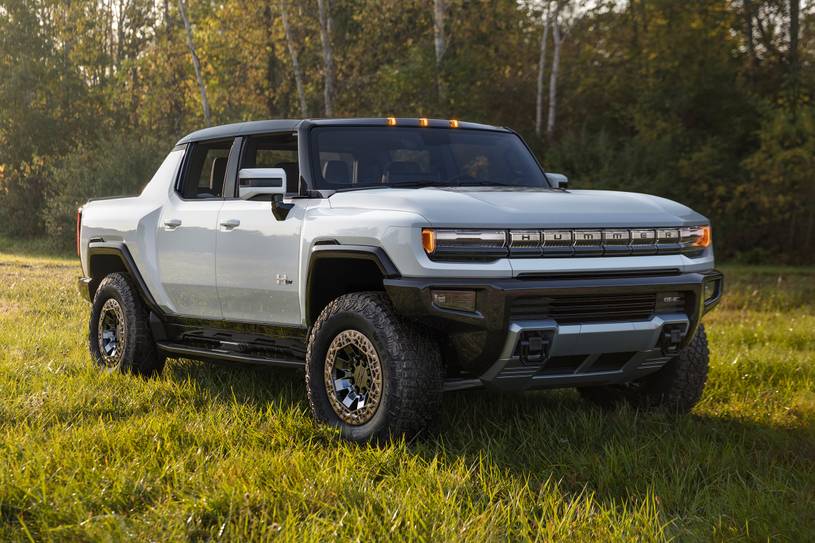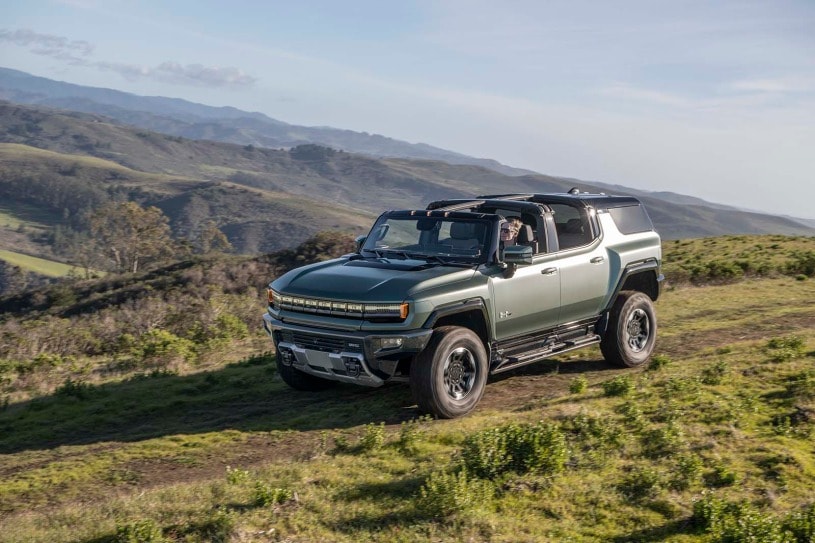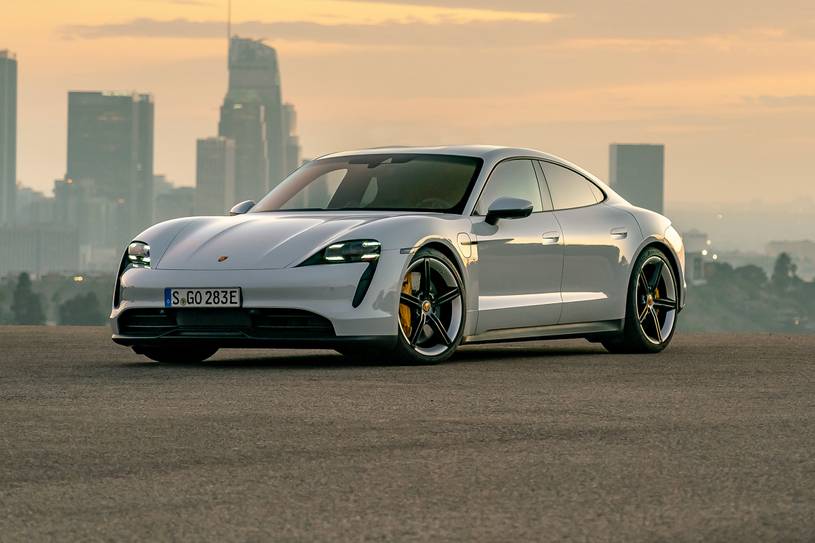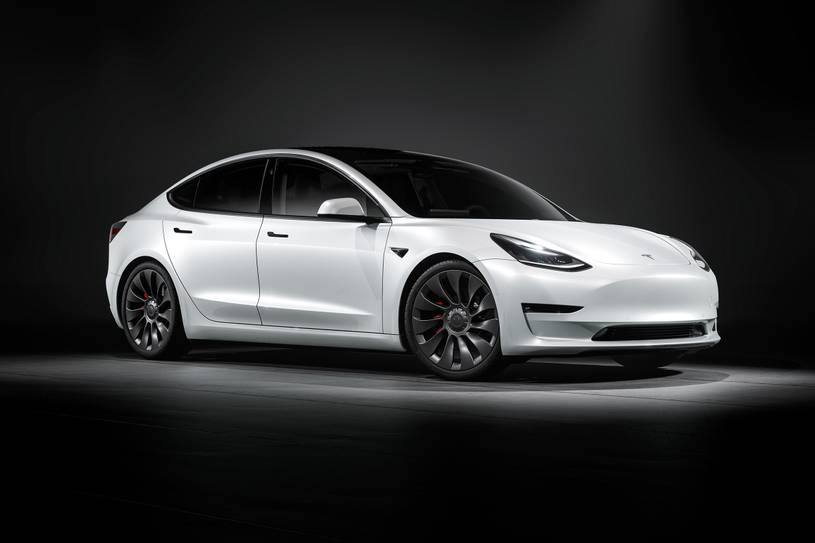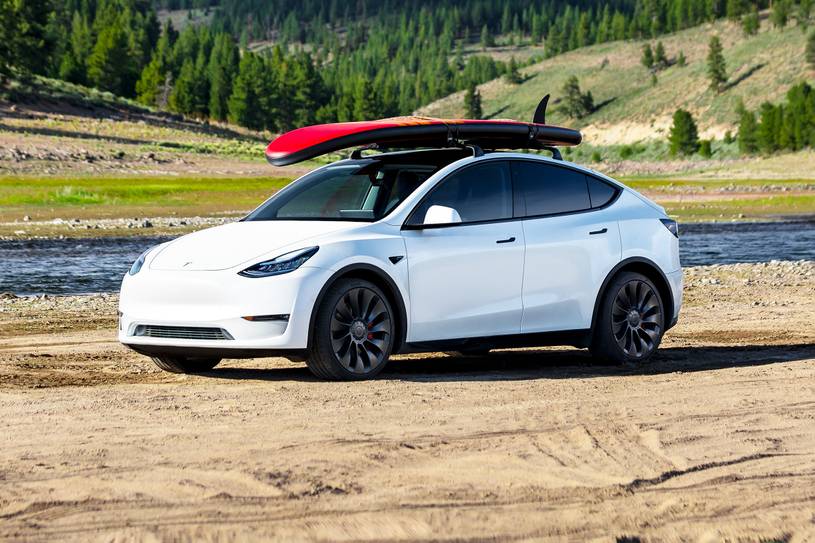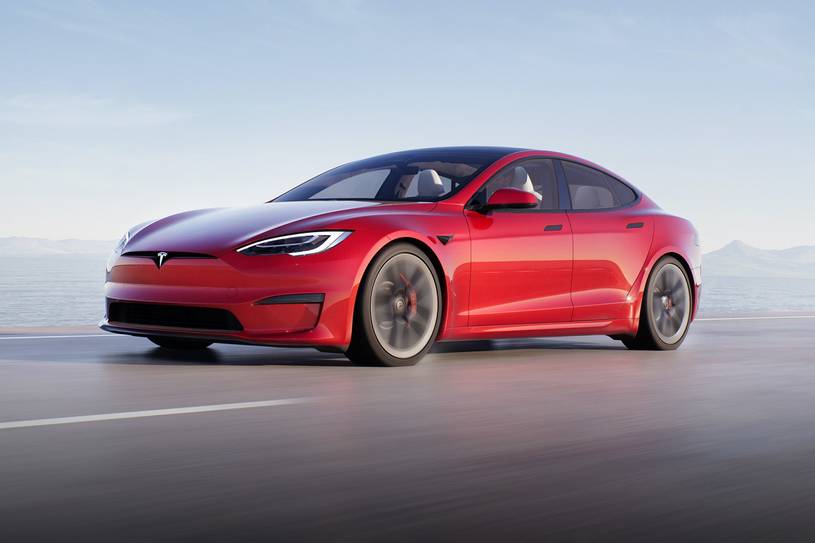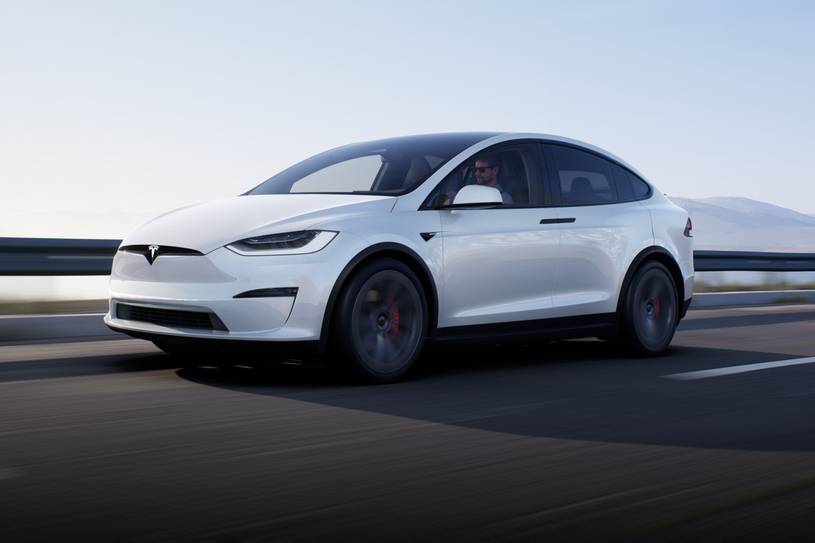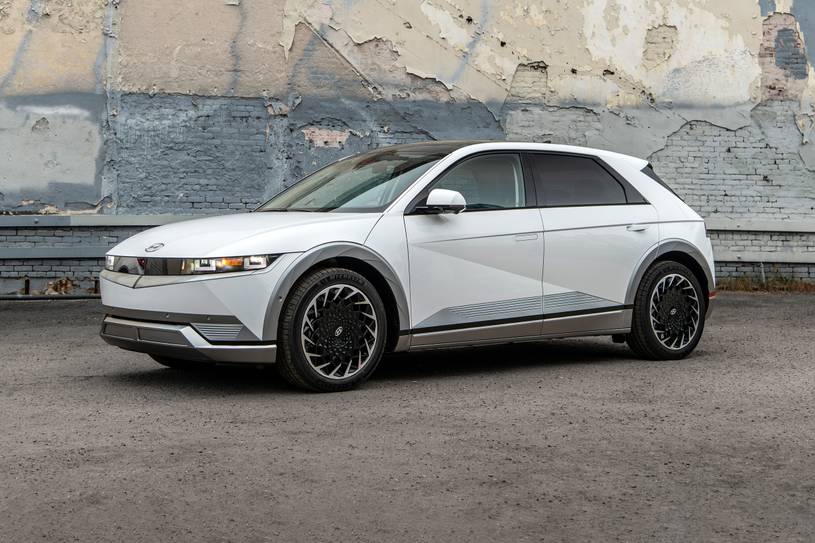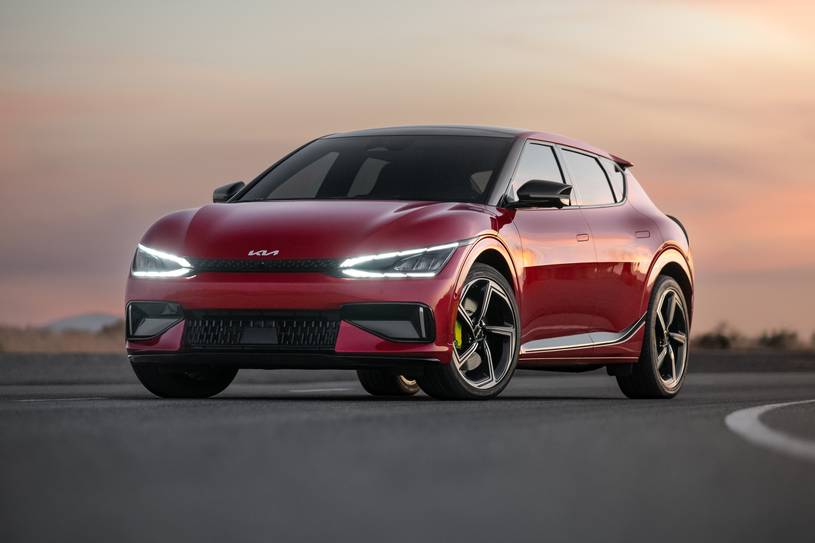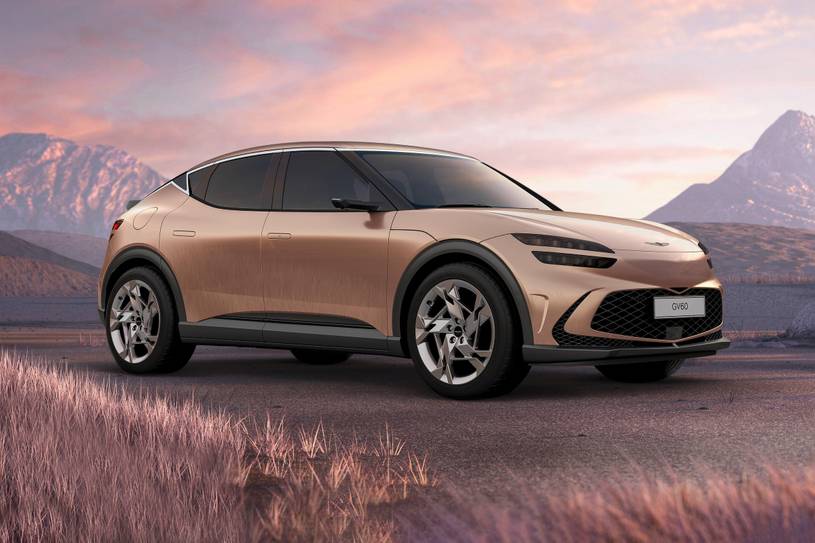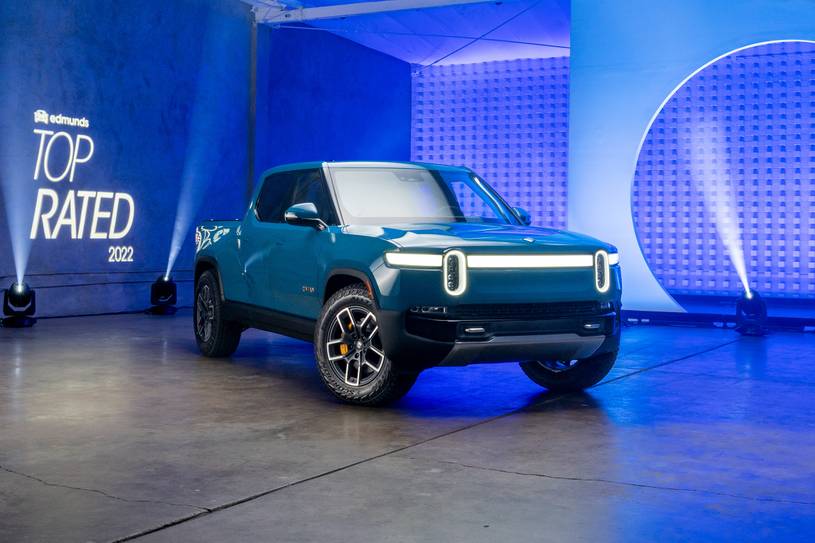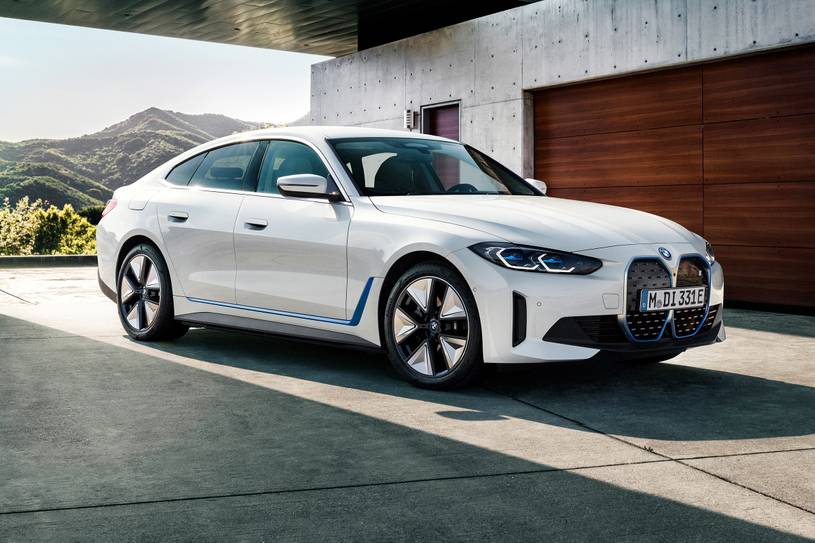The 235-240 kW Club
All Hyundai and Kia EVs that are built on the automakers' E-GMP platform — namely, the Hyundai Ioniq 5, Hyundai Ioniq 6, Genesis GV60 and Kia EV6 — share a peak charge rate of 235 kW. The Genesis G80 Electrified is an outlier, as it's built on a different platform and features a slightly bigger battery. It can charge just a bit more quickly, at a 240-kW peak rate.
Genesis G80 Electrified
The G80 Electrified isn't based on the E-GMP architecture, but it still has an 800-volt architecture that enables it to charge from 10% to 80% in just 22 minutes, according to Genesis. We like this electric take on the G80, which is a great sedan whether it has an engine or not. It also costs less than other offerings in its class and feels just as luxurious and comfortable on the inside. Among its compromises are a rear seat that doesn't fold flat and a ride that's just a little too firm for a car of this type.
Usable battery capacity: 82.5 kWh
Range: 282 miles
Hyundai Ioniq 5
The Ioniq 5 is a superlative-laden EV, and its 800-volt architecture means that, in addition to providing more than 300 miles of range in some trims, it can also charge from 10% to 80% in just 18 minutes when taking advantage of a fast charger. It also rides well, is pretty fun to drive, looks like something out of Blade Runner, and features a quiet and comfortable interior. Its minuscule front trunk, compromised rear visibility and lack of a rear wiper are among its few genuine faults.
Usable battery capacity: 58-77.4 kWh
Range: 220-303 miles
Hyundai Ioniq 6
The Ioniq 6 is built on the same platform as the Ioniq 5, and as a result it shares that car's 800-volt architecture. But that's largely where the similarities end. The 6 is a sedan and doesn't have the 5's cargo space or interior volume, but it does boast better range figures across the board and features the 5's quick charging times, too. However, space in the back seat is a little cramped in the 6, and while we think the Ioniq 5's design is a big win, the 6's looks might not be for everyone.
Usable battery capacity: 74 kWh
Range: 270-361 miles
Kia EV6
The Kia EV6 does a lot of things right. It's more fun to drive than EVs of this type tend to be, and it has a powerful GT variant that delivers stellar performance for something so big and heavy. We also like its interior space, and we appreciate that it's substantially different from the Ioniq 5 and comes packed to the gills with standard equipment. That said, it suffers from poor outward visibility, subpar in-cabin storage and driver aids that aren't as straightforward as some rival systems.
Usable battery capacity: 74 kWh
Range: 232-310 miles
Genesis GV60
The GV60 is the brand's first dedicated electric car, and it too is based on the Hyundai Group's E-GMP car platform. It offers a design language all its own and far more luxury than its E-GMP platform mates from Hyundai and Kia. It also packs in a ton of standard features and its performance trim is both quick and fun to drive. We did hope for more range from Genesis' first from-the-ground-up EV, however. And some of its features, such as the fingerprint reader, strike us as gimmicky add-ons that such a fundamentally good car doesn't need.
Usable battery capacity: 72.6 kWh
Range: 235-248 miles

